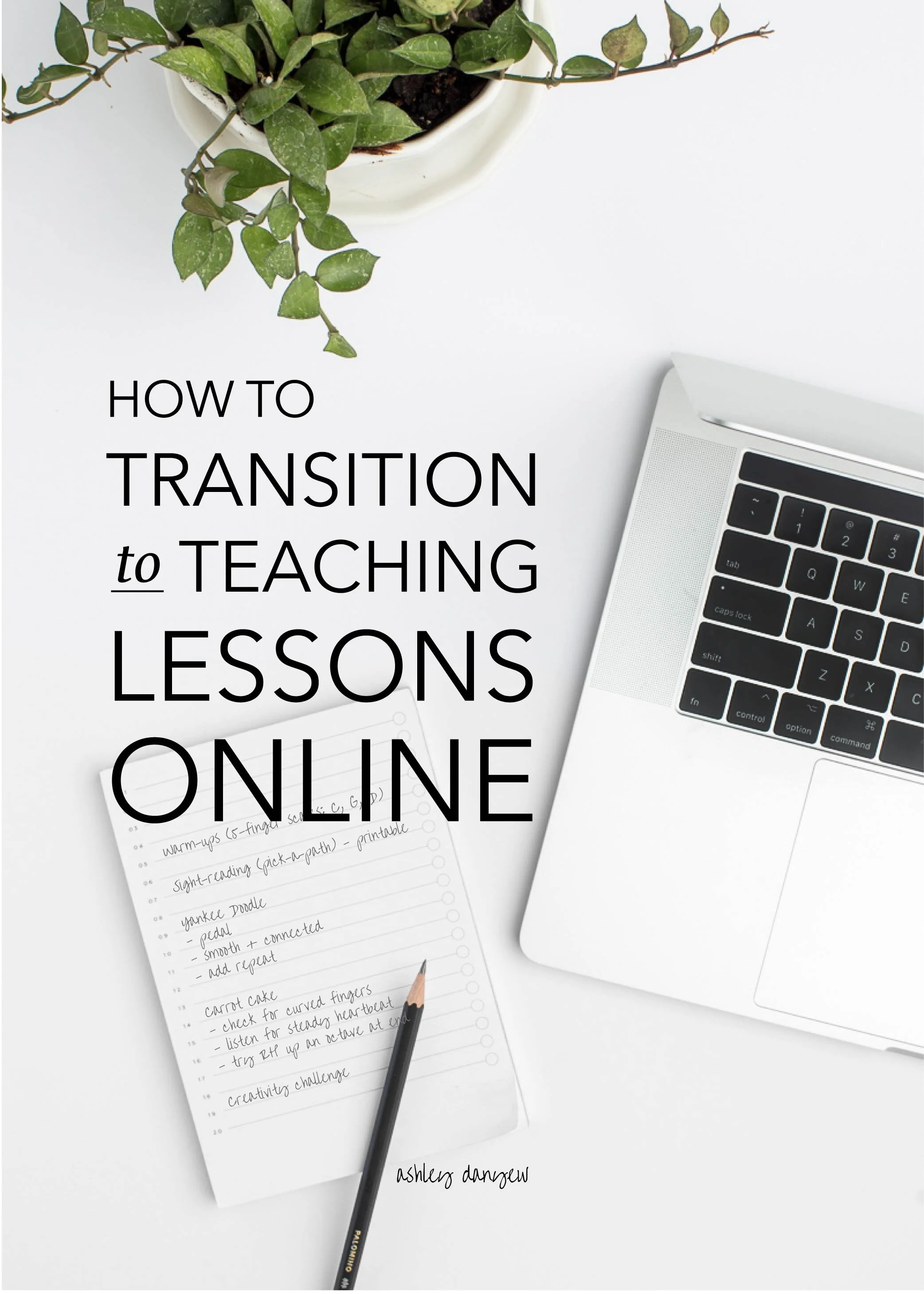We’re living in unprecedented times.
With the recent worldwide outbreak of COVID-19, more and more schools and studios are choosing to close and transition to remote learning.
Maybe you’re like me in thinking that some subjects lend themselves well to being taught online: history, language, math. But music? How do you teaching piano to a 1st grader online? How do you teach choir or band? How do you teach group lessons?
This week, numerous music educators have put together resources, kits, and teaching guides to help others transition to online learning, learn about tools that are available, and get ideas. There are Facebook groups and webinars, blog posts and Google Docs summarizing all the music-related tech tools that are offering special discounts right now.
Here in Rochester, NY, schools are closed and moving online until further notice.
As such, I’m transitioning my studio to online learning. Today, I want to share what that looks like, including:
The notes I’m sending home to parents
Three models for online education I’m offering to all my students (K-10th grade)
Steps I’m taking to plan and prepare for this change
Resources and printables I’m pulling together for the next few weeks
Tools I’m using on the tech side of things
My best recommendations for studio teachers in this situation

















